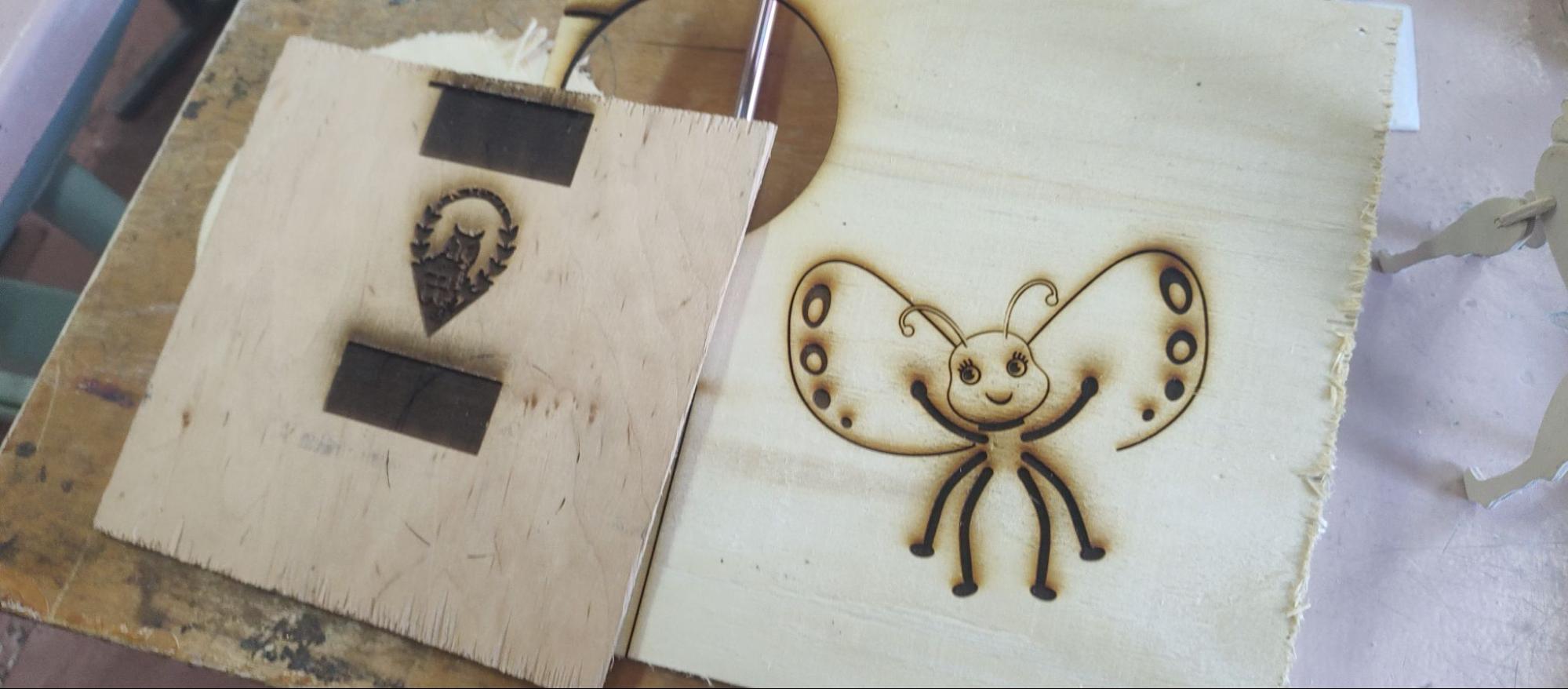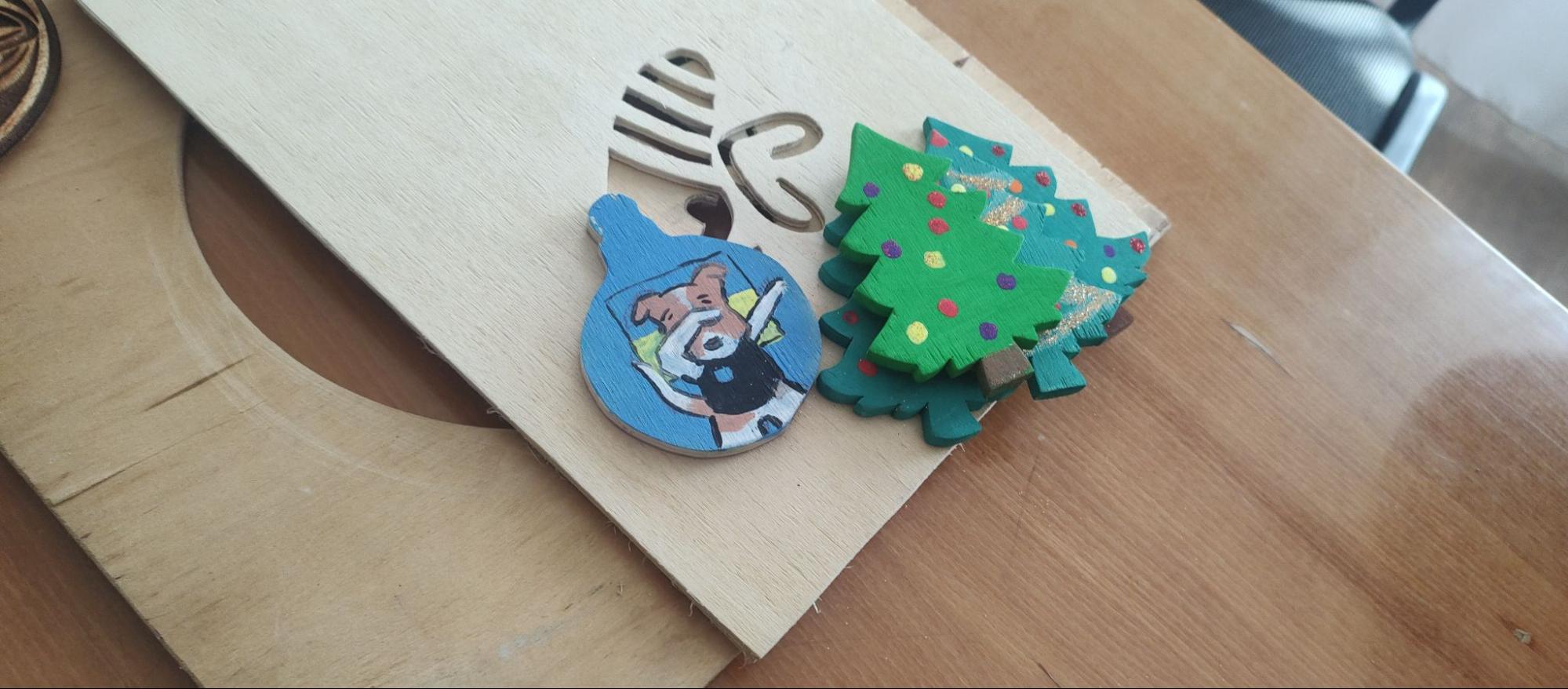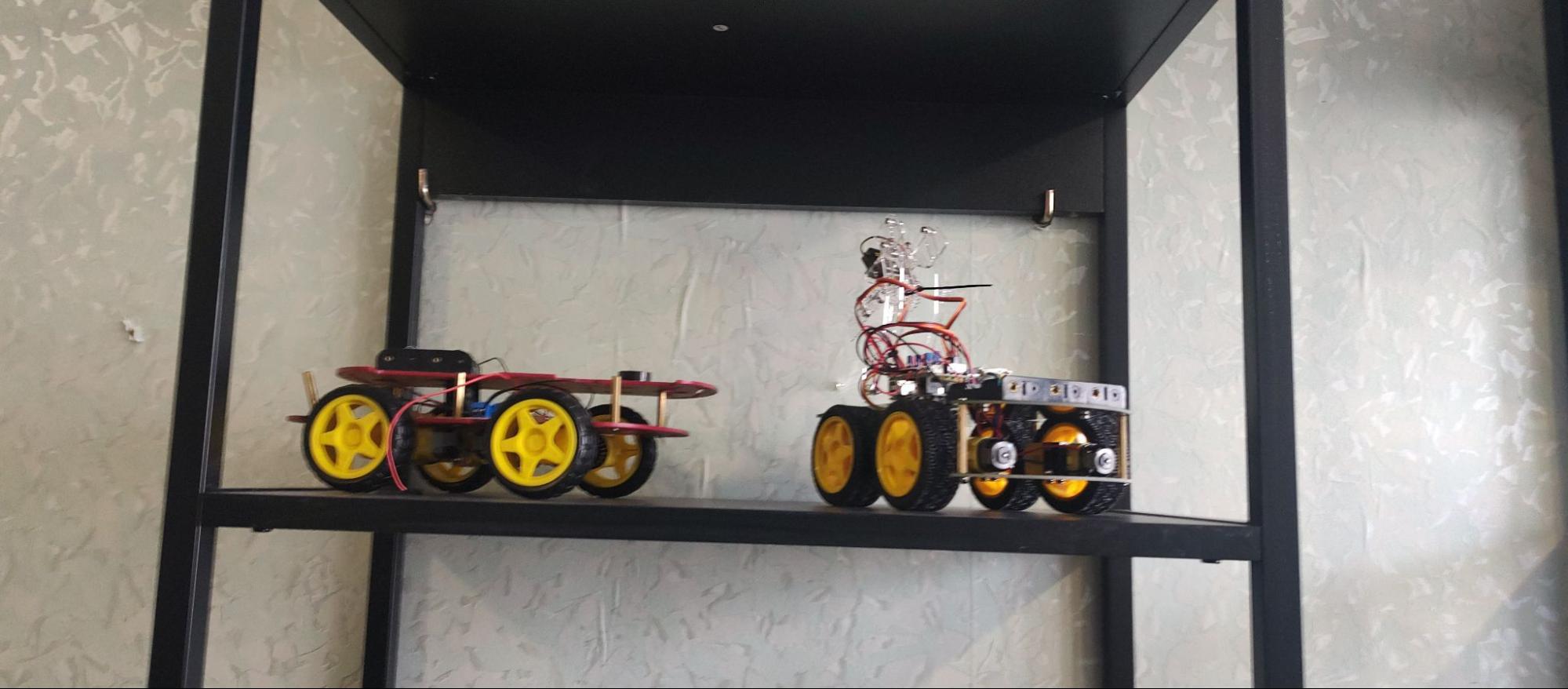
What is the problem?
Mykolaiv schoolchildren do not have access to offline education. The city authorities do not risk returning students to their desks due to the city's proximity to the front line. Explosions preceding the air raid alarms are a common thing there. At the same time, about forty institutions of general secondary education were damaged in the city, and another five were completely destroyed.
Distance learning has been occurring for more than four years—first due to COVID-19 restrictions and later due to full-scale war. This lack of socialization among children is causing problems. Andrii Zinchenko, project manager of the SavED fund in the region, says that there are children who have never studied in a group, which is a big issue.
"Then there are those who once started educational activities offline but were not involved in them in any way for four years," he continues.

The historic Mykolaiv Arkas Lyceum was destroyed on November 1, 2022. Photo by Oleksandr Sienkevych.
What is the solution?
The savED charitable foundation offers an alternative way to restore access to education in the form of Beehives — modern educational spaces based on schools that give children the opportunity to learn offline. Both school teachers and tutors working in the center can conduct classes here. At the same time, it is an excellent place for extracurricular gatherings, during which you can play board games, read modern Ukrainian literature, or draw with 3D pens.
The fund came to the region with such an initiative at the end of 2022, after Kherson was liberated from Russian occupation. Initially, Beehives were created in Mykolaiv itself since it was relatively safer there than in the liberated communities of the region.
This was a pilot project. The organization launched five educational centers in the schools of Mykolaiv, and hundreds of children came in the first days.
Later, savED went further and began restoring access to education in various regional communities. Eighteen Beehives have been set up in the Mykolaiv region. Also, the savED foundation has developed a special handbook with step-by-step instructions for creating a Beehive.
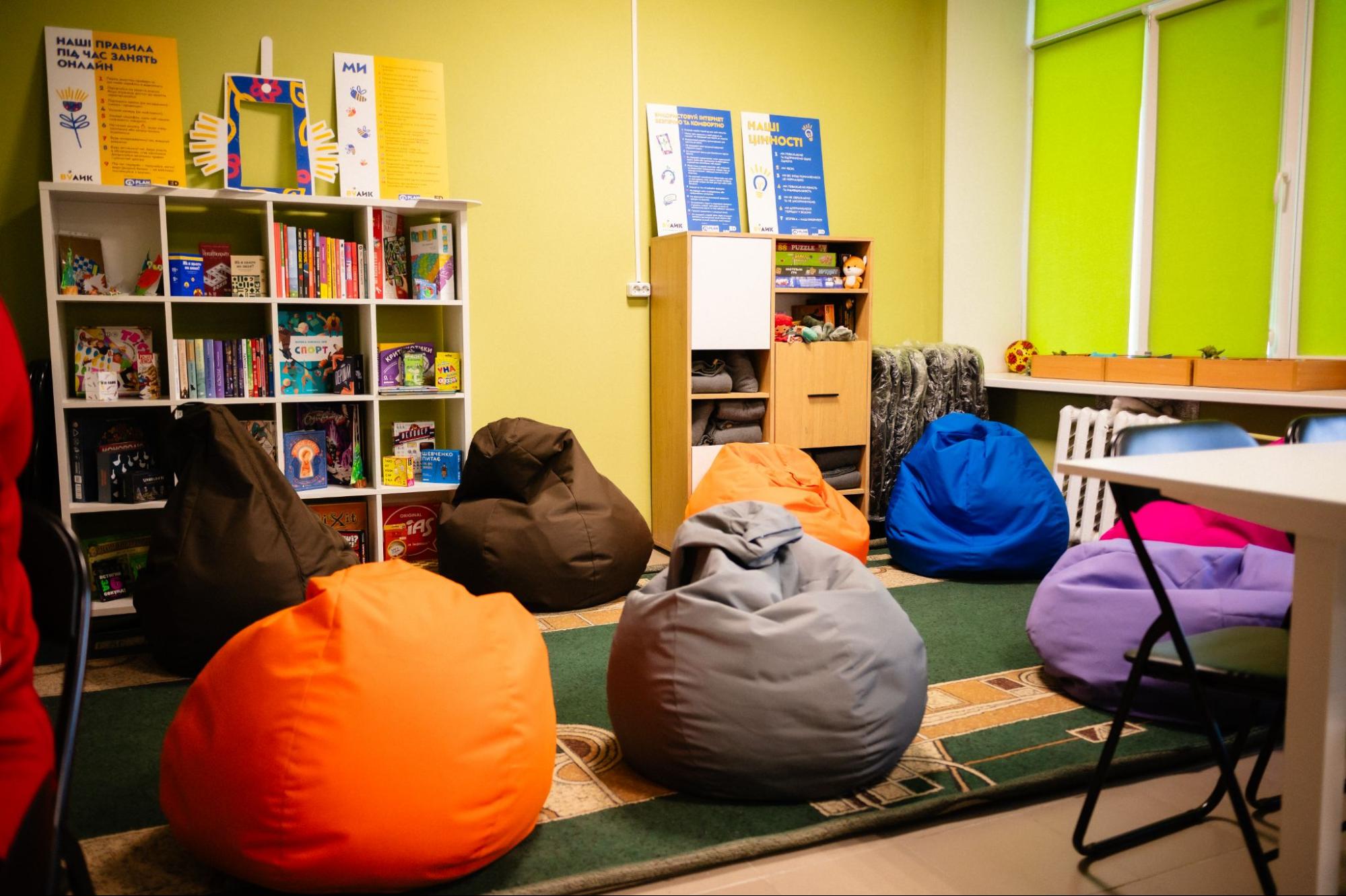
One of the Beehives in Mykolaiv. Photo: savED foundation
How does it work?
Beehive essentials
The main requirement for the educational center's premises is the presence of shelter in or within a radius of one hundred meters. Zinchenko recalls that at the end of 2022, it was quite difficult to find such a place. At that time, mass construction of shelters had not yet begun in the region.
So, the fund started working with old Soviet storage facilities. Generally, they were used as warehouses or other technical premises or simply abandoned. Next, the team tackled basements that could be adapted for the simplest shelters.
When savED decided to restore access to education in the region's communities, it gave preference to communities where the educational infrastructure was damaged or completely destroyed.
Repair and material support of the premises
Having equipped many such centers, the foundation gained extensive expertise for every stage of construction, from dismantling to finishing works. The foundation developed its standards together with designers and psychologists.
Special attention is paid to the visual component and correct color accents. When the center is located in a shelter, it is better to paint the walls white. This will contribute to the visual expansion of the space. Options with wallpaper or textured walls are also possible, but their colors should still be light.
"Furniture should be mobile and complex. Then, in a very short period of time, you can, for example, double the study space, make space for some extracurricular activity out of the study, or turn it into a large room where you can do exercises or games," explains Zinchenko.
SavED centers are usually equipped with 20 to 30 laptops and the same number of tablets. However, when calculating their number, it is necessary to focus on the potential number of visitors. To facilitate the tutor's work and improve the lessons, the center should have a projector and a color printer.
Search for personnel and educational activities
After renovating and equipping the premises, the team starts looking for specialists. Those who work in Beehives are called tutors by savED. They differ from teachers because they work with a smaller number of students or individually and can pay enough attention to each child.
The number of tutors may vary depending on the specifics of each center. However, it is worth noting that an adult must always supervise children, so at least one tutor should be in the center during the work.
When the team is assembled, it is time to start educational activities and, most importantly, to conduct lessons. This can be done by the center's tutors and teachers from other schools. The foundation allows them to enroll in classes. Then the teacher comes with the class to the center at the specified time and conducts a lesson in Ukrainian language, history or mathematics.
The centers can also be used by different lecturers — writers, activists, volunteers, or representatives of the authorities.
A modern digital education center is also a good place for self-study. Thanks to the gadgets that the Beehives are equipped with, students can access the Internet. Therefore, many online platforms are open to them, which will help them learn English or prepare for tests.
Another mandatory component of the centers is a library of Ukrainian books. The foundation team, together with specialists, developed a typical list of books that are available in each center. It contains both classics and fiction, as well as psychological and patriotic literature by Ukrainian and foreign authors.
"It's a bizarre situation: it was believed that children had not read much before, so they went online. But if children are allowed to work with modern, high-quality, bright Ukrainian literature, it turns out there is a demand," says the fund's manager.
Zinchenko says that board games are no less important. This is a great opportunity to interact in groups, not only for children but for teachers as well.
Another way to diversify the educational process is to hold workshops or organize clubs based on interests. In the language club, kids can improve their communication and argumentation skills. They can also gather to discuss films or books in the film club and the reading room, respectively.
Rubryka also visited an educational institution where SavED set up one of the first centers in Mykolaiv. Director Dmytro Vasylkov spoke about how Beehive started working at his school and the project's further development.
Does it really work?
The director says it all started with the old office, which was in terrible condition. The problem of underfunding education was relevant even before the beginning of the full-scale invasion. However, the foundation was satisfied with such a room, and they began to repair and later arrange it.
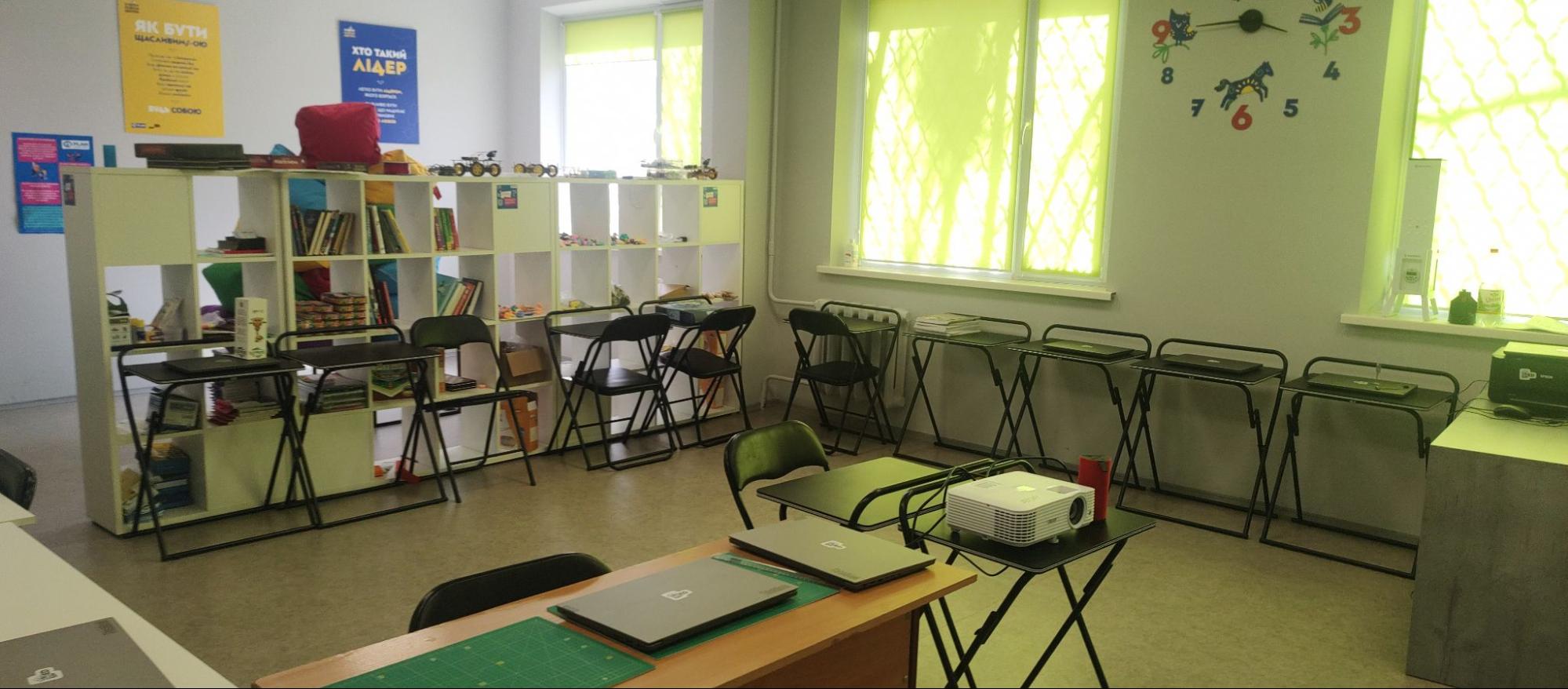
A class that was turned into a Beehive.
The center worked actively from the spring of 2023 until the fall. During this period, various activities were held almost daily. They were attended by 1,250 students of this particular institution and any other willing schoolchildren. At the beginning of fall, there were fewer events as the Beehive concentrated on education and reduced the number of additional activities.
"The city will not remain in trouble, that's 100%," says the headmaster.
Vasylkov, who also works as a physics teacher, emphasizes that the Beehive equipment opens up new educational opportunities. In his classes, students can discuss scientific inaccuracies in fantasy films.
At the same time, there were more opportunities to combine knowledge from different subjects. When students learned how a four-stroke engine works, they combined computer science, work-based learning, and physics. First, they found the model and programmed the 3D printer to print the details. Then, the engine was assembled, and theoretical skills were added to the already acquired practical skills. Such lessons became possible because the school also equipped two laboratories and updated the technical support of the labor training room.
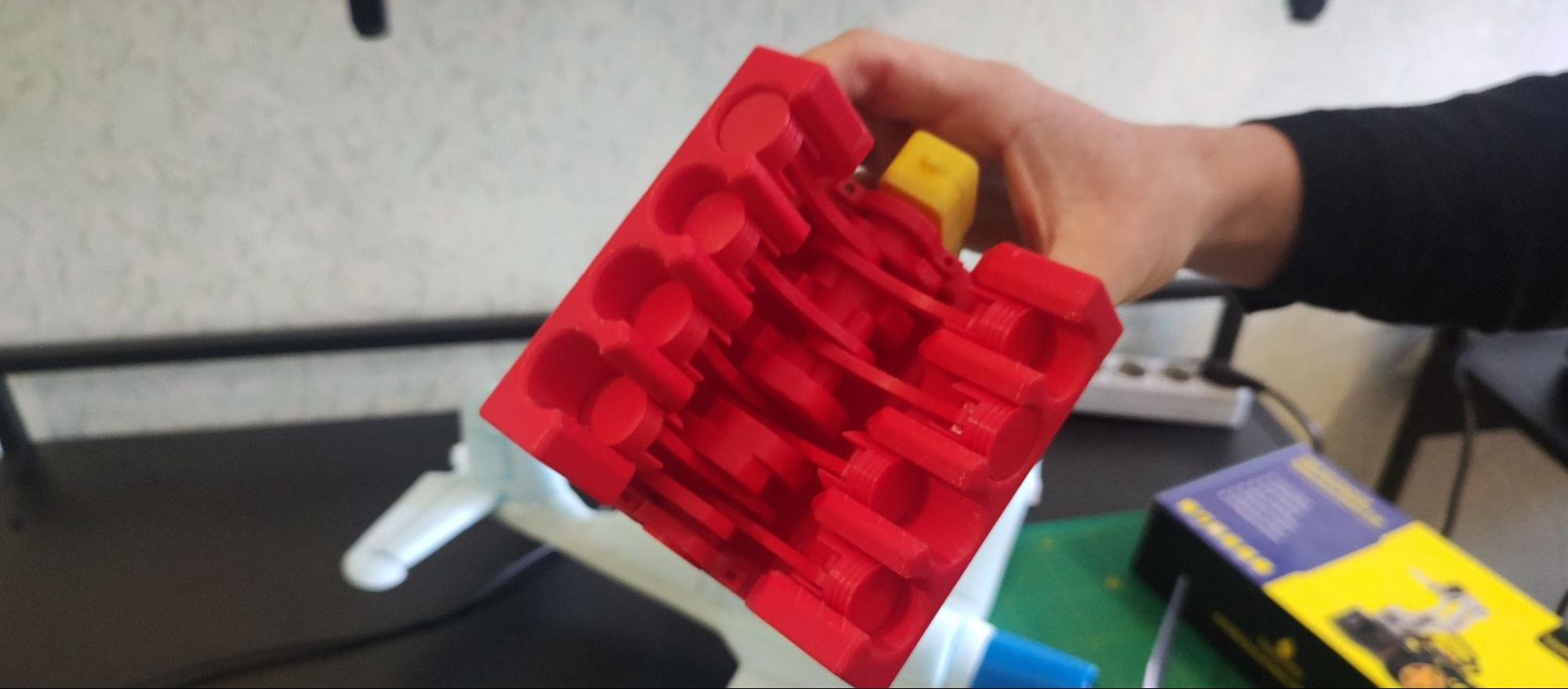
The model of the four-stroke engine is printed on a 3D printer.
One of the laboratories is equipped with devices for chemical and biological experiments. During the latter, schoolchildren determined the quality of water from different places. They also researched the juices of various Ukrainian brands to find the best quality and most beneficial for their health.
In another laboratory, an extracurricular course on robotics is held. One of the developments is a miniature reconnaissance drone. Children also designed their own solar panels using CDs. When resources appear, schoolchildren recycle batteries from Tesla cars into power banks and send them to military personnel.
Also, the center not only restores access to offline education but also helps those who cannot learn online. We are talking about children from the Kherson region who survived the occupation and simply may not have the necessary equipment for online lessons. Then, they come to the center and join the classes thanks to the tablet or laptop.
Even more useful solutions!
When there is a Beehive in the community, it becomes a positive sign for potential partners. It shows that people here are interested and ready to do something. In this way, the savED foundation was able to attract several donors to its projects, who provided quite versatile assistance.
"We have different partners. Some large ones are capable of financially supporting the center's arrangement and fully equipping it. There are slightly smaller partners who objectively have smaller resources, but they can, for example, expand the library by 100, 200, or 300 books," says Zinchenko.
Thus, "high-quality, cool and modern" computers from the Japanese people were supplied to Beehives completely free of charge. Zinchenko says that such initiatives make it possible to reach many children and give them access to digital education.
Another partner fund helped replace the windows in one of Mykolaiv's educational institutions.










